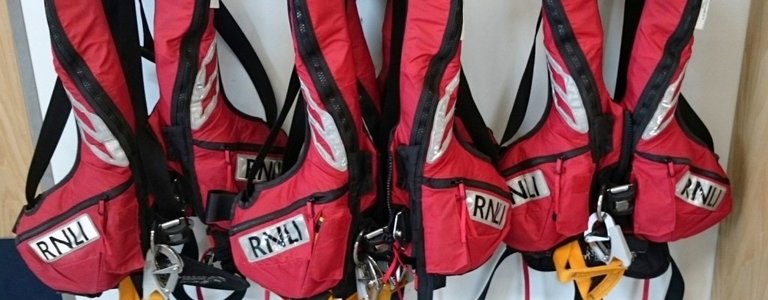Exmouth RNLI coastal safety message – Spring 2015
During the first few months of the year, we have been alarmed to discover that in a large proportion of shouts we were called to, casualties had neglected lifejackets to take to the water. Exmouth RNLI’s Coastal Safety Officer, Peter Williams comments:
‘We take seat belts in road vehicles for granted now– it’s the law and for most of us wearing a seatbelt is now instinctive and it provides a measure of security and safety we probably don’t plan on using when we set out on our journey.
‘Going afloat in whatever type of watercraft for pleasure is in a way the same. We don’t plan on getting into difficulties afloat when we leave – however RNLI statistics based on launches and rescues in recent years show that over 50% of “shouts” are to assist private boat owners and water users. These might be yachts, motor boats, kayaks, canoes wind and kite surfers.’
The RNLI is ready to launch anytime 24/7 in all weathers to assist both crew and vessels in difficulties.
Problems are wide ranging – fuel and engine problems, deteriorating weather conditions, crew illness, fatigue or loss, component failure or breakage, disorientation/loss of position, sinking and overturning to name just a few.
Working in association with the operational crews are the RNLI Coastal Safety Teams who are available to offer free, impartial advice and guidance to assist boat owners in preparing and equipping their vessels and crew whatever type of water related activity is being undertaken.
Whatever type of water sports you are planning please consider the RNLI Top Tips
- Wear a lifejacket or personal flotation device.
- Check on weather and tides.
- Ensure your vessel is properly prepared – fuel, resources, safety equipment, crew capability
- Carry a means of calling for help – flares. VHF radio or Personal Locator Beacon PLB
- Leave details ashore – let others know where you are going and when you expect to be back.
- Training – knowledge of activity is essential.
Log on to http://completeguide.rnli.org/ for informative and in depth advice that we believe will help keep you safe and explain what to do in an emergency.

